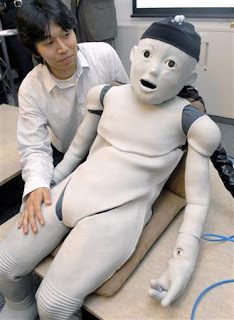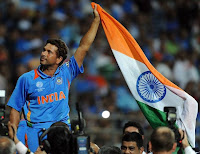
(a) If it was non-violence, why didn’t they leave earlier? Gandhi and the nonviolence were there before the war also. Did they have? To wait for the Japanese to come and teach them non – violence
(b) The year 1942 was momentous. It was the year in which the British Empire suffered a massive defeat at the hands of an Asiatic people (Japanese); impact of the Japanese victory on the psyche of the colonized people as well as on that of the colonizing powers. What triggered it was the Fall of Singapore.
(c) When the Japanese attacked Singapore in February 1942, its large and well-equipped British garrison surrendered without a fight. In the fall of Singapore, its symbolic significance was infinitely greater than the military defeat.
(d) When the war was over, all the Indian soldiers who had defeated the Japanese returned to India, and the British got scared. They didn’t want to fight the Indians who had just fought and defeated the Japanese.
(e) British were just ordinary mortals like the rest that allowed Netaji Subhas Bose to recruit Indians in Southeast Asia into the Indian National Army (Azad Hind Fauz or the INA).
(d) When the opportunity arose, Bose seized it to transform the armed forces into a nationalist force, while Gandhi and Nehru started the Quit India Movement which collapsed in a few weeks.
(e) Many Indians who saw action in the war— both in the Indian Army and those who fought in Subhas Bose’s INA. Indian soldiers saw that their British officers were frightened to death of the Japanese, while they themselves were prepared to fight them.
* In the fall of Singapore, its symbolic significance was infinitely greater than the military defeat. It destroyed the myth of European superiority over the Asiatic once and for all.
* After the War, the British defeat in Singapore was followed by the French defeat in Dien Bien Phu at the hands of Ho Chi Min’s soldiers in Vietnam.
What support do we have that Subhas Bose and the INA brought freedom to India?
The late R.C. Majumdar, one of modern India’s greatest historians. In his monumental, three-volume History of the Freedom Movement in India (Firma KLM, Calcutta) Majumdar provided the following extraordinary evidence:
“It seldom falls to the lot of a historian to have his views, differing radically from those generally accepted without demur, confirmed by such an unimpeachable authority. As far back as 1948 I wrote in an article that the contribution made by Netaji Subas Chandra Bose towards the achievement of freedom in 1947 was no less, and perhaps, far more important than that of Mahatma Gandhi…”
The ‘unimpeachable authority’ he cited happened to be Clement Attlee, the Prime Minister of Britain at the time of India’s independence. Since this is of fundamental importance, and Majumdar’s conclusion so greatly at variance with the conventional history, it is worth placing it on record (Volume III, pages 609 –10).
When B.P. Chakravarti was acting as Governor of West Bengal, Lord Attlee visited India and stayed as his guest at the Raj Bhavan for three days. Chakravarti asked Attlee about the real grounds for granting independence to India. Specifically, his question was, when the Quit India movement lay in shambles years before 1947, where was the need for the British to leave in such a hurry.
Attlee’s response is most illuminating and important for history. Here is Governor Chakrabarti’s account of what Attlee told him:
“In reply Attlee cited several reasons; the most important were the activities of Netaji Subhas Chandra Bose which weakened the very foundation of the attachment of the Indian land and naval forces to the British Government. Towards the end, I asked Lord Attlee about the extent to which the British decision to quit India was influenced by Gandhi’s activities. On hearing this question Attlee’s lips widened in a smile of disdain and he uttered, slowly, putting emphasis on each single letter— ‘mi-ni-mal’.” (Emphasis added.)
Another point worth noting: after the fall of Singapore that ended the British Empire, the most dramatic national event was the INA Trial at the Red Fort— not any movement by Gandhi or Nehru. This led to the mutiny of the naval ratings, which, more than anything helped the British make up their minds to leave India in a hurry. They sensed that it was only a matter of time before the mutiny spread to other parts of the armed forces and the Government.
None of this would have happened without Subhas Bose and the INA. The crucial point to note is that thanks to Subhas Bose’s activities, the Indian Armed Forces began to see themselves as defenders of India rather than of the British Empire. Indian soldiers, who were the main prop of the Empire, were no longer willing to fight to hold it together. This is the essence of leadership.
1. The year 1942 was momentous. It was the year in which the British Empire suffered a massive defeat at the hands of an Asiatic people (Japanese).
2. Impact of the Japanese victory on the psyche of the colonized people as well as on that of the colonizing powers. What triggered it was the Fall of Singapore.
3. When the war was over, all the Indian soldiers who had defeated the Japanese returned to India, and the British got scared. They didn’t want to fight the Indians who had just fought and defeated the Japanese.
4. British were just ordinary mortals like the rest that allowed Netaji Subhas Bose to recruit Indians in Southeast Asia into the Indian National Army (Azad Hind Fauz or the INA).
5. Netaji Bose was against rendering any kind of help to the British during the World War II. He warned them so. The Second World War broke out in September of 1939, and just as predicted by Bose, India was declared as a warring state (on behalf of the British) by the Governor General, without consulting Indian leaders. The Congress party was in power in seven major states and all state governments resigned in protest.
6. It was in 1941, that Bose suddenly disappeared. The authorities did not come to know for many days that he was not in his Barrack ) the house in which he was being guarded) He traveled by foot, car and train and resurfaced in Kabul (now in Afghanistan), only to disappear once again. In November 1941, his broadcast from German radio sent shock waves amongst the British and electrified the Indian masses who realized that their leader was working on a master plan to free their motherland. It also gave fresh confidence to the revolutionaries in India who were challenging the British in many ways.
7. By the end of the War, Gandhi was a spent force, and Subhas Bose was India’s most popular leader. A most hazardous journey was undertaken by him under water, covering thousands of miles, crossing enemy territories. He was in the Atlantic, the Middle East, Madagascar and the Indian Ocean. Battles were being fought over land, in the air and there were mines in the sea. At one stage he traveled 400 miles in a rubber dingy to reach Japanese submarine, which took him to Tokyo. He was warmly received in Japan and was declared the head of the Indian army, which consisted of about 40,000 soldiers from Singapore and other eastern regions. Bose called it the Indian National Army (INA) and a government by the name "Azad Hind Government" was declared on the 21st of October 1943. INA freed the Andaman and Nicobar islands from the British and was renamed as Swaraj and Shaheed islands. The Government started functioning.
8. Bose had struck alliance with Germany and Japan. The crucial point to note is that thanks to Subhas Bose’s activities, the Indian Armed Forces began to see themselves as defenders of India rather than of the British Empire.
9. During his sojourn to England, he met with the leaders of British Labor Party and political thinkers including Clement Attlee, Arthur Greenwood, Harold Laski, G.D.H. Cole, and Sir Stafford Cripps. Bose also discuss with them about the future of India. It must also be noted that it was during the regime of the Labor Party (1945-1951), with Attlee as the Prime Minister, that India gained independence.
By the end of the War, Gandhi was a spent force, and Subhas Bose was India’s most popular leader. Now, after many years and more later it is time to recognize the truth: first, it was the Fall of Singapore in 1942, not the Quit India Movement that was the beginning of the end of the British Empire; and finally, it was Netaji Subhas Chandra Bose more than anyone else who was responsible for India’s freedom in 1947. Subhas Bose with his INA campaigns probably contributed more too Indian independence than Gandhi, Nehru and their movements. Moreover, the result of Subhas Bose’s activities was the rise of the nationalist spirit in the Indian Armed Forces. As a matter of facts the Quit India Movement launched in 1942 were not the last uprising against the British rule in India, it was rather a part of the ongoing politics in India. This, more than anything else, was what led to India’s freedom.












.jpg)
.jpg)



